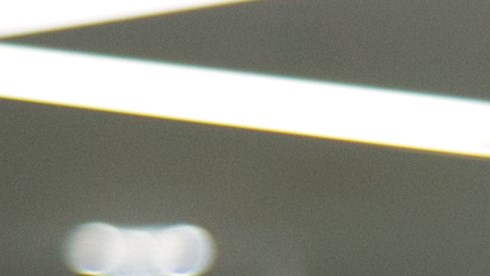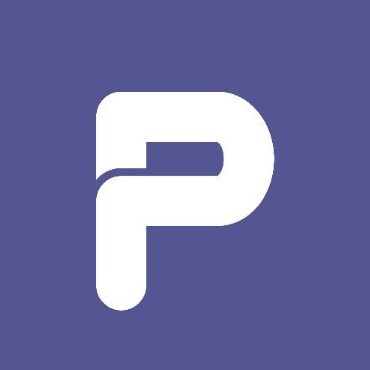Working on physical celluloid film
&cropxunits=490&cropyunits=328&maxwidth=1600&maxheight=900&width=1160&height=653&quality=90)
This seven-day programme includes practical and technical training to enable hands-on experience on a range of cameras using physical celluloid film including 8mm, 16mm, 35mm, 65/70mm cameras and equipment.
The course, supported by the ScreenSkills Film Skills Fund with contributions from UK film productions, is run by The Pipeline and delivered by cinematographers Laura Hillard and Steve Wyatt.
Who it's for
The course assumes some knowledge and/or experience in film cinematography and is not designed for new entrants or those in early career. This course is suitable for experienced and expert professionals working in the film industry including 2nd/ 1st assistant camera, technicians, gaffers, DOPs, HODs, and other camera department roles.
We always welcome applications from under-represented groups, including, but not limited to: those from minority ethnic backgrounds; people with a disability; people from the LGBTQ+ community and those from lower socio-economic backgrounds.
We offer inclusive training. If you have any needs that we can accommodate during the recruitment process and beyond, please let us know at hello-pipelinemedia@salford.ac.uk and we will be happy to work with you to meet them.
What it covers
The course is carefully planned to offer hybrid training, with four days of practical training on 8mm, 16mm, 35mm and 65/70mm cameras.
Participants will be guided through the production workflow with a visit to Pinewood Studios where they will follow the journey of film development at the Kodak Film Lab and scanning processes at Digital Orchard. The first and last day of the course will be delivered online.
While this course will cover practical and technical information as well as creative aspects, this course is primarily focussed on the practical application of camera techniques, workflow and lab processes.
Participants will be brought up-to-date with the needs of the current industry in relation to the usage of celluloid and the nuances of each of the cameras.
Training to cover:
- Super 8mm, 16mm, 35mm and 65mm camera build
- Coaxial vs displacement magazines and film core types, magazine loading, colour tape system
- Magazine and changing bag maintenance, film camera notes
- Optical reflex viewfinder, diopter setup, gate checking and scratch testing
- Film stock identification – assessing film stocks for projects
- Film stock orders and management
- Filtration – exploring matte box filters for film cameras
- A brief history of cameras – from pinhole to red one to miniLF
- Understanding how the eye sees, and the technical process by which the camera captures light and transforms it to create and capture an image
- Modernising film cameras: a workflow for modern digital filmmakers and camera department adapting to working with film in the 21st century
- Video tap systems and monitoring and battery considerations
- Optics, basic lens design and crop factor considerations for 16mm and 35/65mm lenses
- Focus pulling for film and depth of field charts
- Introduction to sensitometry, basic colour science, film development and processing (pushing/pulling), communication with the lab
- Visit to Kodak Lab – development/processing tour
- Visit to Digital Orchard – scanning and dailies workflow, how to talk to your colour grader
- Lighting for celluloid, dynamic range considerations
- Light metering and exposure of film stock
- Grain vs noise
- Shooting Macbeth colour charts, aspect ratio guides, ground glass considerations
- Film stock management and production workflow for celluloid
- Purchasing, budgeting, paperwork management, and storage and transportation
Course dates
25 May 10:00 -17:00
Online technical session that provides a historical and technical overview of celluloid film, the workflows, techniques, production and lab processes.
28 - 31 May 10:00 – 17:00
Four-day face-to-face practical training at Media City, Salford. Participants will work with 8-, 16-, 35- and 65/70mm cameras, including loading, camera building and lighting. All participants will have hands-on experience of working with each camera, supported by the lead trainers to help them gain proficiency in handling the equipment. Each participant will be given the opportunity to shoot their own footage.
7 June
A full day at Kodak, Pinewood, where the participants can see the full developing process through to the digital scans at Digital Orchard.
8 June
The final session will be hosted online and provide the opportunity for rushes from the test shoots to be reviewed. This enables participants to gain peer and trainer feedback and problem-solve on areas that need to be further discussed, with individual and group breakout sessions where needed. Participants will look at the workflow through the lens of the producer, including budgeting, logistics and scheduling on celluloid.
How to apply
Please click 'apply now' to submit your application. You will need to be logged into your ScreenSkills account to submit your application.
&cropxunits=400&cropyunits=400&maxwidth=600&maxheight=600&width=150&height=150&quality=80&scale=both)